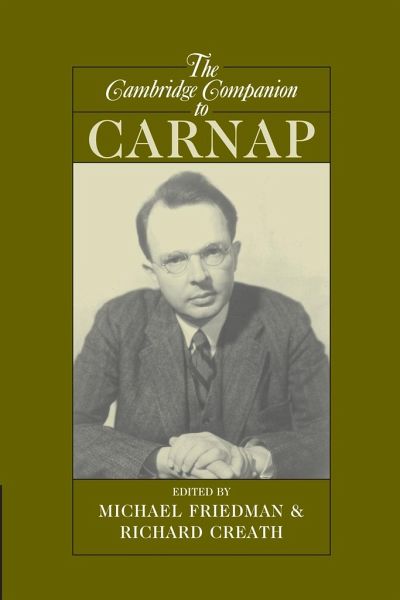
The Cambridge Companion to Carnap
Versandkostenfrei!
Versandfertig in 1-2 Wochen
40,99 €
inkl. MwSt.
Weitere Ausgaben:

PAYBACK Punkte
20 °P sammeln!
Rudolf Carnap (1891–1970) is increasingly regarded as one of the most important philosophers of the twentieth century. He was one of the leading figures of the logical empiricist movement associated with the Vienna Circle and a central figure in the analytic tradition more generally. He made major contributions to philosophy of science and philosophy of logic, and, perhaps most importantly, to our understanding of the nature of philosophy as a discipline. In this volume a team of contributors explores the major themes of his philosophy and discusses his relationship with the Vienna Circle and with philosophers such as Frege, Husserl, Russell, and Quine. New readers will find this the most convenient and accessible guide to Carnap currently available. Advanced students and specialists will find a conspectus of recent developments in the interpretation of Carnap.




